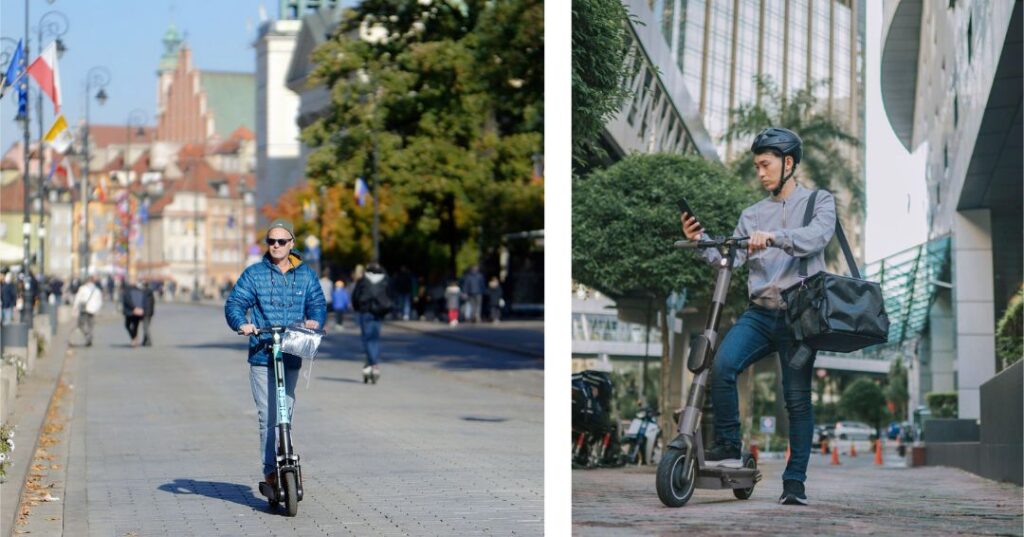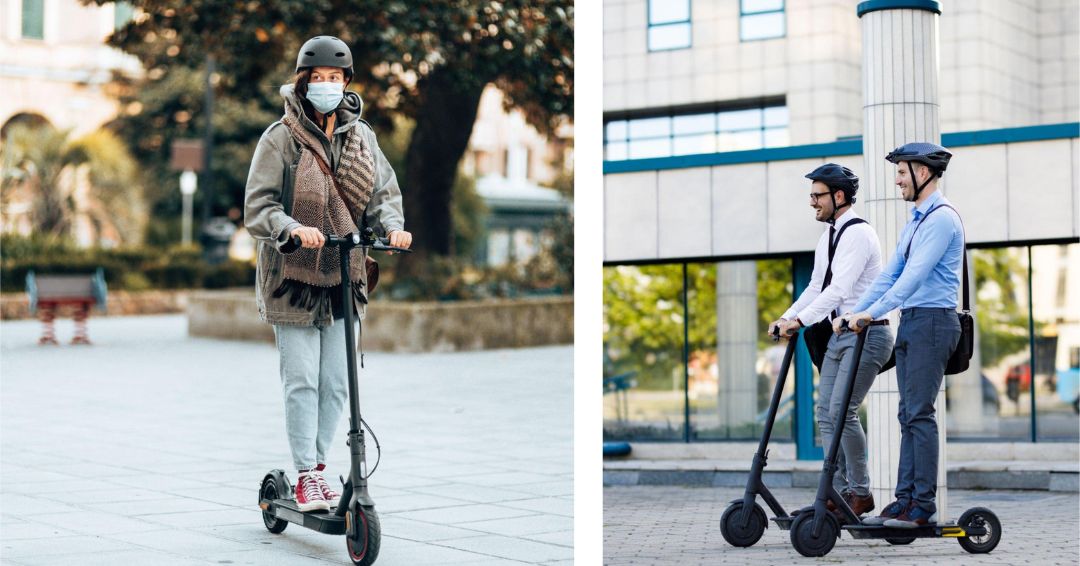Electric scooters have become a popular form of transportation in many parts of the world, but their use on public roads and sidewalks has raised concerns about safety and regulations. In this comprehensive guide, we will discuss the various laws and regulations that apply to electric scooters in different countries and cities.
Electric scooters are a type of personal mobility device that runs on an electric motor and is designed to be ridden standing up or sitting down. While they are convenient and eco-friendly, they can pose risks to riders, pedestrians, and drivers if they are not used safely and responsibly.
This is why electric scooter laws have become increasingly important, as they help to ensure that riders follow specific rules and guidelines to prevent accidents and injuries.
According to recent statistics, electric scooter accidents have been on the rise in many cities, leading to a growing concern among authorities and the public. For instance, a study by the Consumer Product Safety Commission found that there were over 27,000 electric scooter-related injuries in the US alone in 2019.
In this article, we will provide a detailed overview of electric scooter laws in different countries and regions, including the United States, Europe, and Asia. We will cover topics such as registration and licensing requirements, safety equipment, speed limits, and penalties for violating electric scooter laws.
By the end of this guide, you will have a better understanding of the electric scooter laws that apply to you and how to ride your electric scooter safely and legally.
Electric Scooter Laws in the United States

Electric scooters are subject to various laws and regulations in the United States, ranging from federal to state and local laws. In this section, we will discuss the key electric scooter laws that apply to riders in the US.
Federal laws regarding electric scooters
At the federal level, electric scooters are classified as “motorized vehicles” and are subject to the regulations of the National Highway Traffic Safety Administration (NHTSA). However, the NHTSA does not have specific regulations for electric scooters, which means that the laws are mainly defined at the state and local levels.
State-wise electric scooter laws
Each state in the US has its own laws and regulations regarding electric scooters. Some states, such as California, allow electric scooters to be ridden on bike lanes and roads with speed limits of up to 25 mph, while other states, such as New York, have banned them altogether.
City-wise electric scooter laws
In addition to state laws, many cities in the US have their own regulations for electric scooters. For example, some cities require riders to wear helmets and prohibit riding on sidewalks, while others have designated parking areas for electric scooters.
Registration and license requirements for electric scooters
In most states, electric scooters do not require registration or a license to operate. However, some cities and states require riders to obtain a special permit or registration, and some also require a driver’s license.
Safety equipment requirements
Many states and cities require riders to wear helmets when riding electric scooters. Some cities also require additional safety equipment, such as reflective clothing or lights.
Penalties for violating electric scooter laws
Violating electric scooter laws can result in fines, impounding of the electric scooter, or even criminal charges in some cases. The consequences of a violation differ based on the type and severity of the offense.
Overall, it’s important for electric scooter riders in the US to be aware of the laws and regulations that apply to their use. By following these rules, riders can stay safe and avoid any legal consequences.
Electric Scooter Laws in Europe
Electric scooters are becoming increasingly popular in Europe, and many countries have developed specific laws and regulations to govern their use. In this section, we will discuss the key electric scooter laws that apply in Europe.
European Union electric scooter laws
The European Union (EU) has established regulations for electric scooters under the type approval framework. According to these regulations, electric scooters must meet certain safety and environmental standards before they can be sold or used in the EU.
Country-wise electric scooter laws
Each country in Europe has its own laws and regulations regarding electric scooters. For instance, in France, electric scooters are allowed on bike lanes and roads with speed limits of up to 50 km/h, while in Germany, they can only be used on bike lanes and sidewalks with a maximum speed of 20 km/h.
Registration and license requirements
The registration and licensing requirements for electric scooters in Europe vary by country. In some countries, such as Germany, electric scooters must be registered and insured, while in others, such as Italy, no registration or insurance is required.
Safety equipment requirements
Many countries in Europe require electric scooter riders to wear helmets and other safety equipment, such as reflective clothing or lights. However, the specific requirements vary by country.
Penalties for violating electric scooter laws
Violating electric scooter laws in Europe can result in fines, impounding of the electric scooter, or even criminal charges in some cases. The penalties vary depending on the nature and severity of the violation.
Overall, it’s important for electric scooter riders in Europe to be aware of the laws and regulations that apply to their use. By following these rules, riders can stay safe and avoid any legal consequences.
Electric Scooter Laws in Asia
Electric scooters are also gaining popularity in many Asian countries, and governments are enacting laws and regulations to govern their use. In this section, we will discuss the key electric scooter laws that apply in Asia.
Electric scooter laws in Japan
In Japan, electric scooters are classified as “motor-assisted bicycles” and are subject to specific regulations, including a maximum speed limit of 24 km/h and a requirement for riders to have a license plate and insurance.
Electric scooter laws in China
In China, electric scooters are classified as “low-speed electric vehicles” and are subject to specific regulations, including a maximum speed limit of 20 km/h and a requirement for riders to have a license plate and insurance.
Electric scooter laws in Singapore
In Singapore, electric scooters are classified as “personal mobility devices” and are subject to specific regulations, including a maximum speed limit of 25 km/h and a requirement for riders to have a license and register their device.
Registration and license requirements
The registration and licensing requirements for electric scooters in Asia vary by country. In some countries, such as Japan and China, electric scooters must be registered and insured, while in others, such as Singapore, riders must obtain a license and register their device.
Safety equipment requirements
Many countries in Asia require electric scooter riders to wear helmets and other safety equipment, such as reflective clothing or lights. However, the specific requirements vary by country.
Penalties for violating electric scooter laws
Violating electric scooter laws in Asia can result in fines, impounding of the electric scooter, or even criminal charges in some cases. The consequences of a violation differ based on the type and severity of the offense.
Overall, it’s important for electric kick scooter riders in Asia to be aware of the laws and regulations that apply to their use. By following these rules, riders can stay safe and avoid any legal consequences.
Frequently Asked Questions (FAQs)
Here are some common questions people have about electric scooter laws:
Are electric scooters legal in all states/countries?
No, electric scooters are not legal in all states or countries. The laws regulating electric scooters vary by location, so it’s important to check the local laws and regulations before riding.
Do I need a license to ride an electric scooter?
In numerous locations, riding an electric scooter does not necessitate a license. However, some states and countries do require a driver’s license or a special license for electric scooter riders. To ascertain if a license is mandatory, it’s essential to review the local laws and regulations.
What safety equipment is required for riding an electric scooter?
Many states and countries require electric scooter riders to wear a helmet. Some also require reflective clothing or lights on the scooter for increased visibility. The specific safety equipment requirements vary by location, so it’s important to check the local laws and regulations.
Can I ride my electric scooter on the sidewalk?
In many places, riding an electric scooter on the sidewalk is illegal. Nevertheless, certain cities and towns have specific bike lanes or paths that permit the use of electric scooters. To determine the areas where electric scooters are permissible, it’s crucial to review the local laws and regulations.
What is the maximum speed limit for electric scooters?
The maximum speed limit for electric scooters varies by location. In the United States, the maximum speed limit for electric scooters is typically 15 to 20 mph, while in Europe and Asia, it’s often around 25 km/h. It’s important to check the local laws and regulations to determine the maximum speed limit for electric scooters in your area.
Conclusion
In this article, we’ve explored electric scooter laws in different parts of the world. We’ve looked at the federal, state, and city laws in the United States, the European Union, and various European countries, as well as laws in Japan, China, and Singapore. We’ve also answered some frequently asked questions about electric scooter laws.
It’s important to follow electric scooter laws to ensure the safety of both the rider and other pedestrians or vehicles on the road. By understanding the laws and regulations in your area, you can avoid potential fines and legal issues.
As electric scooters become more popular, it’s likely that laws and regulations will continue to evolve. Some cities have already implemented pilot programs to test out new regulations for electric scooters. As technology improves and becomes more widespread, we may see more comprehensive laws put in place to ensure the safe and responsible use of electric scooters.
Overall, electric scooters can be a convenient and eco-friendly way to get around, but it’s important to follow the laws and regulations in your area to ensure a safe and enjoyable ride.





Leave a Reply